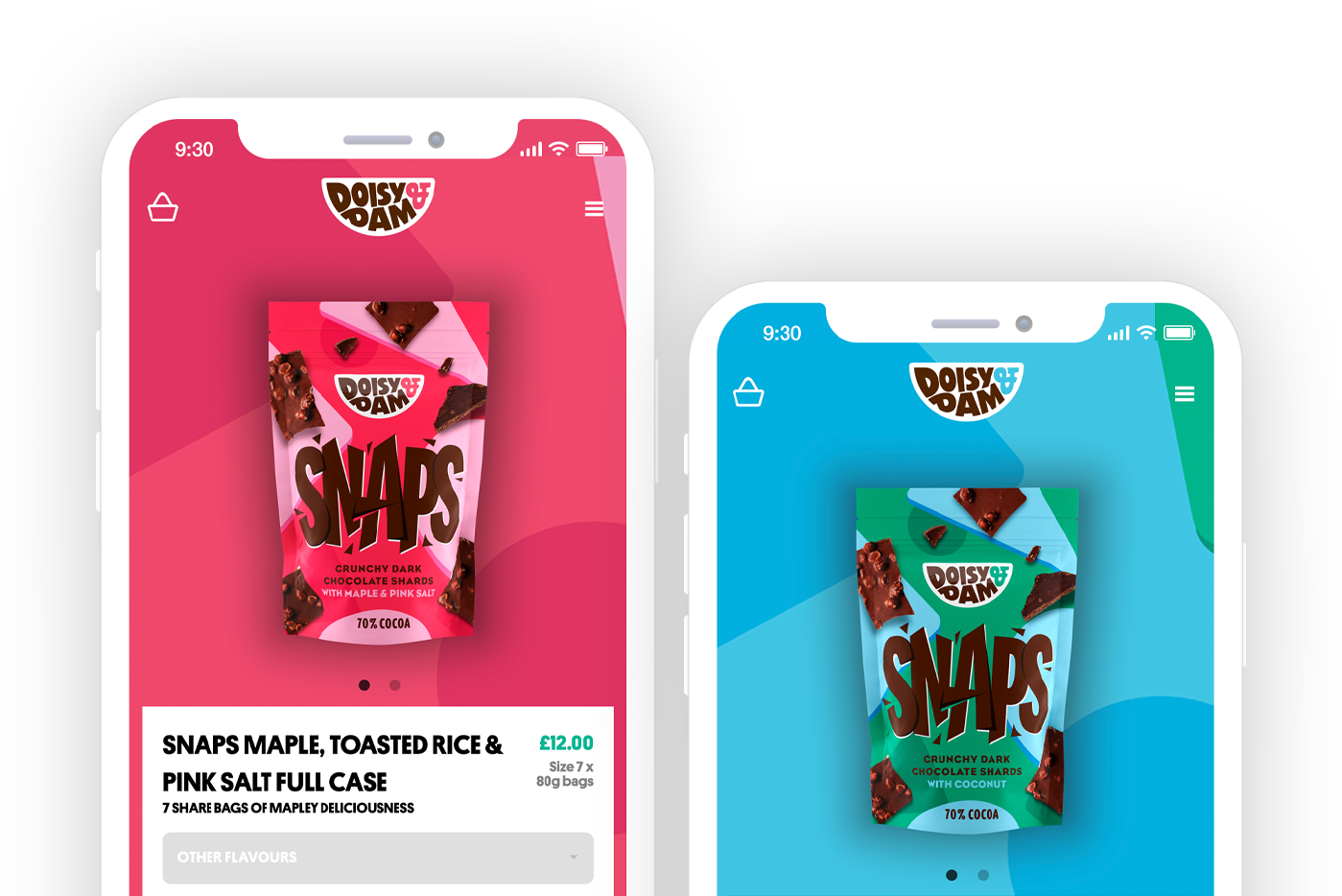Future Trends and Innovations
Predictive Personalisation:
Employ advanced machine learning models that analyse a myriad of data points, including past purchases, browsing behavior, and even social media interactions. These models can dynamically predict not only what products a customer may be interested in but also the most effective time to send an email for maximum engagement.
Automated Insights:
Integrate AI-driven analytics tools that not only provide insights but also automatically generate actionable recommendations. These tools can analyse vast datasets, identify patterns, and offer suggestions for optimising subject lines, content, and send times based on historical performance and current trends.
Interactive Email Elements
Interactive Content:
Experiment with various interactive elements within emails, such as shoppable carousels, quizzes, and polls. Shoppable emails, for example, allow customers to make purchases directly from the email, creating a seamless and convenient shopping experience. Interactive content not only engages users but also provides valuable data on customer preferences.
Real-time Personalisation:
Explore real-time personalisation tools that dynamically update email content based on a recipient's current context. For instance, incorporate weather-based recommendations or location-specific promotions. Real-time personalisation adds an element of immediacy and relevance, increasing the impact of your emails.
What is Email Marketing? Conclusion
Navigating the intricate landscape of advanced email marketing requires a meticulous blend of data-driven strategies, compliance adherence, and a keen eye on emerging trends. By delving into the nuances of behavioral targeting, customer lifecycle management, compliance best practices, and futuristic innovations, ecommerce merchants can position themselves at the forefront of email marketing excellence. This holistic approach ensures not only immediate success but also sustainable growth in an ever-evolving digital landscape.Email marketing is a dynamic strategy that requires careful consideration and implementation of various tips and examples to achieve optimal results. Whether you're a seasoned email marketer or someone just starting, there are numerous things to keep in mind to enhance your campaigns. One tip is to pay attention to the number of email addresses in your list. Quality should always take precedence over quantity. Ensure that your list comprises engaged readers who genuinely find value in your content. Having a smaller, more engaged audience is often more effective in generating leads and driving revenue.
Something crucial for email marketers is to look at the top-performing emails for inspiration and learning. Analyse successful campaigns from other companies or competitors in your industry. Understanding what resonates with your target audience can provide valuable insights into creating compelling content and achieving your email marketing objectives. Building and maintaining a strong relationship with your contacts is another important thing to focus on. Personalisation and segmentation based on factors like location, preferences, or purchase history can significantly improve engagement. Tailoring your emails to the specific interests of your audience increases the likelihood of achieving your email marketing goals. Collaboration within your team is fundamental to the success of email marketing efforts. The revenue generated from email campaigns is often a collective effort that involves various team members, including designers, content creators, and data analysts. A cohesive team can optimise every aspect of your email marketing strategy.
Email users today are bombarded with numerous messages, so it's essential to stand out. Utilise email marketing software, such as HubSpot or other industry-specific solutions, to streamline processes, track performance, and ensure that your emails look professional across many devices. While there are many email marketing software options available, it's crucial to choose one that aligns with your objectives. Some software suites offer comprehensive solutions, including CRM integration, landing page creation, and advanced analytics. Research and choose the one that best fits your company's needs and budget. Numerous studies and case studies showcase the effectiveness of email marketing, but it's essential to adapt strategies to fit the unique requirements of your company and industry. Consider the preferences and behaviors of your target audience and explore different things, such as language and content format, to see what resonates best.
Gender segmentation is a method that can be particularly effective in tailoring your emails to specific audiences. Understanding the preferences and interests associated with different genders allows you to create more personalised and relevant content, improving the overall consumer experience. Landing pages play a crucial role in converting leads generated from email campaigns. Ensure that your landing pages align with the content of your emails and provide a seamless and user-friendly experience. This kind of integration can significantly improve conversion rates and contribute to achieving your email marketing objectives. One important aspect often overlooked is the subject line of your emails. Crafting compelling subject lines is a bit of an art and science. A well-crafted subject line can make the difference between your email being opened or landing in the spam folder. Conduct A/B tests to find the optimal subject line for your target audience.
Compliance with regulations like the European Union's GDPR and Canada's CASL is a matter of utmost importance. Ensuring that you have the necessary permissions and opt-ins from your contacts is essential to avoid legal issues and maintain a positive reputation with your audience. Monitoring the metrics and numbers associated with your email campaigns is crucial for making informed decisions. Keep an eye on open rates, click-through rates, and conversion rates. Analysing these numbers helps you identify areas of improvement and refine your email marketing strategy. Budget considerations are another important factor. Allocate a specific budget for your email marketing efforts, considering expenses for software, design, and content creation. A well-planned budget ensures that you can implement effective campaigns without overspending.
In the world of email marketing, staying ahead of changes is fundamental. Email platforms, spam filters, and consumer behavior evolve, so regularly update your strategies to adapt to these shifts. Regularly review and adjust your methods to maintain relevance and effectiveness. Implementing fundamentals like a clear signup form on your website or a compelling opt-in incentive can significantly grow your email list. Providing an easy and attractive way for visitors to subscribe increases the chances of expanding your audience and achieving your email marketing goals. In conclusion, successful email marketing involves a combination of strategy, collaboration, and adaptability. By focusing on the fundamentals, testing different options, and staying informed about industry trends and regulations, you can create effective campaigns that resonate with your audience and contribute to the overall success of your company.
What is Email Marketing? Additional Comments
Email marketing is a dynamic and multifaceted strategy that allows marketers to connect with people on a personal level while simultaneously building brand awareness. By employing a variety of approaches, marketers can craft compelling email marketing campaigns that resonate with their target audience and drive meaningful engagement.One powerful way to enhance brand awareness through email marketing is by consistently delivering high-quality and relevant content. Whether it's educational blog posts, insightful industry news, or exclusive promotions, providing value to subscribers helps build a positive perception of the brand. Marketers can strategically integrate their brand messaging into these communications, reinforcing the company's identity with every email sent. To achieve maximum impact, marketers must explore different ways to optimise their email marketing campaigns. For instance, leveraging marketing automation can significantly streamline processes, allowing for personalised and timely communication. Automation tools can be utilised to send targeted emails based on user behavior, ensuring that each message is tailored to individual interests.
Segmentation is another crucial aspect of effective email marketing. By categorising email lists based on demographics, preferences, or past interactions, marketers can create highly targeted campaigns. This personalised approach not only increases the relevance of the content but also improves the chances of recipients engaging with the emails. Crafting visually appealing email templates is essential for making a lasting impression. Consistent branding elements, such as the company's logo, color scheme, and design aesthetics, should be incorporated into each template. This not only reinforces brand identity but also enhances the overall professionalism and recognition of the emails. In the ever-evolving landscape of email marketing, marketers can experiment with different types of content to keep their audience engaged. This may include multimedia elements such as videos, GIFs, or interactive features. By diversifying content formats, marketers can cater to different preferences within their target audience and make their emails more engaging.
The choice of an email service provider (ESP) is pivotal in the success of email marketing campaigns. A reliable ESP offers features like advanced tracking, confirmation emails, and analytics that enable marketers to measure the effectiveness of their campaigns. It's crucial to select an ESP that aligns with the specific needs of the company, ensuring a seamless and efficient email marketing process. However, navigating the legal landscape is equally important. Adhering to email marketing laws and regulations is essential to avoid potential disadvantages, such as fines or damage to the brand's reputation. Obtaining permission from recipients and ensuring compliance with laws like the General Data Protection Regulation (GDPR) are fundamental steps for responsible and lawful email marketing.
To further enhance the effectiveness of email marketing, marketers can leverage valuable resources and templates. Researching industry trends, customer behavior, and benchmark reports provides valuable insights that can inform campaign strategies. Additionally, creating compelling lead magnets, such as e-books, whitepapers, or exclusive content, can entice more people to subscribe to newsletters, expanding the reach of the email marketing list. Building customer loyalty is an ongoing objective for brands, and email newsletters play a crucial role in achieving this goal. By consistently delivering relevant and valuable content, brands can cultivate a sense of loyalty and trust among their audience. Exclusive offers, sneak peeks, and personalised recommendations further strengthen the bond between the brand and its customers.
Driving traffic to websites and blogs is a fundamental purpose of email marketing. Including strategically placed links to relevant blog posts or website pages in marketing emails can significantly increase click-through rates. This not only boosts website traffic but also improves search engine rankings, contributing to the overall online visibility of the brand. During holidays or special events, email marketing provides a unique opportunity for brands to connect with their audience. Festive and themed email newsletters can create a sense of excitement and urgency, prompting recipients to take action, whether it's making a purchase, participating in an event, or sharing the content with their network. In conclusion, the advantages of email marketing are vast and varied. By incorporating segmentation, templates, marketing automation, and lead magnets, marketers can overcome challenges and maximise the impact of their campaigns. Staying informed about industry trends, legal requirements, and customer interests is essential for creating successful and effective email marketing strategies that resonate in today's dynamic digital landscape.
What is Email Marketing? Frequently Asked Questions & Answers
Q1: Why is email marketing essential for ecommerce?
A1: Email marketing for ecommerce is indispensable, playing a pivotal role in establishing a direct, cost-effective line of communication with your audience. This channel allows you to engage customers, build lasting relationships, and drive sales, providing a personalised touch that fosters brand loyalty. With the ability to tailor messages and campaigns, email marketing becomes a cornerstone for ecommerce success.
Q2: How can I build and grow my email list effectively?
A2: Building and growing your email list is a strategic process that involves employing diverse opt-in strategies. Utilise well-timed pop-ups, offer enticing incentives such as exclusive discounts, and clearly communicate the unique value proposition of being a subscriber. Prioritise segmentation based on customer behavior and preferences to ensure that your email list is not just large but also highly targeted and engaged.
Q3: What are the key components of a successful email campaign?
A3: A successful email campaign is a culmination of various key components. Craft eye-catching subject lines that capture attention and entice recipients to open. Personalise content based on customer data, addressing them by name and tailoring recommendations. Ensure compelling copy that conveys your message effectively, and enhance visual appeal with high-quality images and graphics. Experiment with different types of campaigns, including welcome emails, promotions, cart abandonment, and product recommendations. This diversity keeps your campaigns fresh and resonates with different segments of your audience.
Q4: How can I optimise my emails for mobile users?
A4: Optimising emails for mobile users is essential in today's digital landscape. Ensure a responsive design that adapts seamlessly to various screen sizes, providing a cohesive and visually pleasing experience. Craft short and snappy content that captures attention quickly, catering to the preferences of mobile users who often engage in brief interactions. Thoroughly test your emails across different devices to guarantee optimal viewing, and consider mobile-specific features to enhance the user experience further. Mobile optimisation not only meets user expectations but also maximises engagement and conversions.
Q5: Which email marketing platforms are recommended for ecommerce businesses?
A5: Choosing the right email marketing platform is a critical decision for ecommerce merchants. Popular platforms such as Mailchimp, Klaviyo, and Constant Contact offer a range of features suitable for ecommerce needs. Consider factors such as scalability, ease of use, and integration capabilities when selecting a platform that aligns with your business goals. Evaluating these aspects ensures that you leverage a platform that caters specifically to the unique requirements of your ecommerce business.
Q6: What is the significance of advanced strategies like behavioral targeting and customer lifecycle management?
A6: Advanced strategies like behavioral targeting and customer lifecycle management elevate email marketing to a new level of sophistication. Behavioral targeting involves tracking user actions and tailoring messages based on their behavior, ensuring personalised and relevant communication. Customer lifecycle management maps the entire customer journey, allowing for strategic communication at various touchpoints, from onboarding to retention. Implementing these advanced strategies not only enhances the customer experience but also maximises the effectiveness of your email campaigns by delivering the right message to the right audience at the right time.
Q7: How can AI and machine learning benefit email marketing?
A7: AI and machine learning offer transformative benefits to email marketing, particularly in predictive personalisation, automated insights, and real-time personalisation. Predictive personalisation leverages machine learning algorithms to analyse vast datasets, predicting customer preferences and behavior for highly targeted content. Automated insights use AI-driven analytics tools to provide actionable recommendations, allowing for data-driven optimisation of subject lines, content, and send times. Real-time personalisation dynamically updates email content based on a recipient's current context, ensuring immediate relevance and engagement. Integrating these technologies enhances the efficiency and impact of your email marketing strategy, propelling it into the future.
Q8: What steps should I take to ensure legal compliance and optimal email deliverability?
A8: Ensuring legal compliance and optimal email deliverability is crucial for the success of your email marketing efforts. Adhere to data protection regulations such as GDPR by implementing robust practices, including encryption, secure storage, and regular audits. Comply with the CAN-SPAM Act by incorporating accurate sender information, relevant subject lines, and a seamless opt-out process. Proactively manage and enhance your sender reputation through list hygiene, sender authentication, and adherence to industry best practices. A positive sender reputation is key to consistently reaching your audience's inboxes and maximising the deliverability of your email campaigns.
Q9: What are some future trends in email marketing for ecommerce?
A9: Future trends in email marketing for ecommerce are dynamic and exciting. Increased use of AI for predictive analytics promises more accurate targeting and personalisation. Interactive email elements, such as shoppable content, provide immersive experiences directly within emails. Real-time personalisation tools dynamically update content based on a recipient's current context, ensuring immediate relevance. Staying updated on these trends and experimenting with new features will keep ecommerce merchants at the forefront of
innovation, ensuring their email marketing strategies evolve with the dynamic landscape.
Q10: How can ecommerce merchants stay updated on evolving email marketing trends?
A10: Staying updated on evolving email marketing trends is essential for ecommerce merchants to remain competitive. Engage with industry publications, attend webinars, and participate in relevant forums to stay informed on the latest developments. Regularly monitor analytics to identify emerging patterns and customer behavior trends. Embrace experimentation by testing new features, technologies, and strategies. Staying agile in adopting new trends ensures that ecommerce merchants not only keep pace with industry advancements but also proactively position themselves as innovators in the ever-evolving field of email marketing.
There are many cases on the internet that prove the effectiveness of email marketing, after reading this article we hope that you've gained some valuable knowledge on these topics and hope that you can relate to some of these email marketing examples in the future! The idea of email marketing takes into account the reality of generating lifetime value for your customers. Email strategies can be made from scratch, our through templates or rules where you can edit predefined sections so that all you have to fill in is any text/images and an email subject line. If you're considering to implement email marketing tactics for your business, or have a problem that you need help with in regard to ecommerce as a whole, don't hesitate to get in touch. We are an ecommerce and email marketing agency that can assist others whether they're a beginner or expert in the space.













